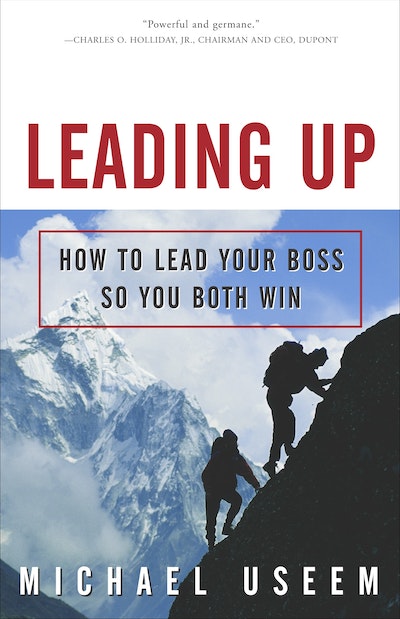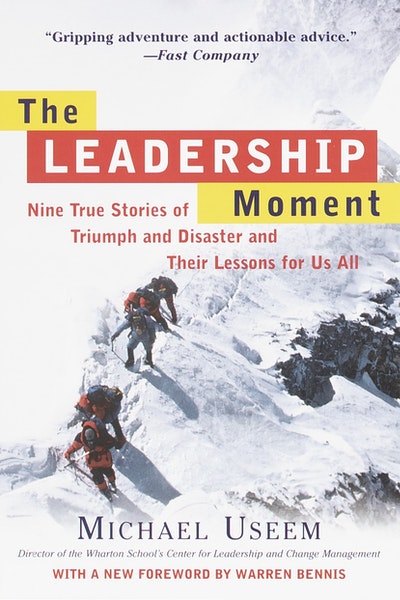- Published: 25 March 2003
- ISBN: 9781400047000
- Imprint: Crown
- Format: Paperback
- Pages: 336
- RRP: $36.99
Leading Up
How to Lead Your Boss So You Both Win
- Published: 25 March 2003
- ISBN: 9781400047000
- Imprint: Crown
- Format: Paperback
- Pages: 336
- RRP: $36.99
“Often the best coaching a leader can receive is directly from the team he/she leads. Openness to their feedback is critical, and Professor Useem’s new book provides many dramatic examples of successes and failures in this important dimension.” —Arthur Martinez, former chief executive officer of Sears, Roebuck & Co. “Teaching your boss is the most important thing that anyone in business, government, or the nonprofit world needs to know. Leading Up is a must-read for everyone.” —Leonard A. Lauder, chairman, the Estée Lauder Companies, Inc. “Professor Michael Useem has shown himself a master in the use of vignettes to teach us about leadership. In his latest book, Leading Up, he has again used reality, this time to discuss ‘those who would dare to lead their leaders.’ In today’s fast-moving and often chaotic world, this book is a must-read. It will help you help your boss be the best he can be and in doing so, build a better organization and increase your value to that organization.” —General Charles C. Krulak, former commandant of the U.S. Marine Corps and senior vice chairman, MBNA Corporation “Leadership is not just about telling people what to do. It is about building a common purpose—a goal—that everyone on the team works hard to achieve. To do that, leaders must understand that it is not just about them and their goals. It is about creating a group where voices are heard and help offered is help received. Leading Up shows how great leaders create groups that win.” —Joel Kurtzman, Global Lead Partner, Thought Leadership, PricewaterhouseCoopers “The message afforded by Leading Up is powerful and germane as we continue to decentralize and empower our organizations. As Mike Useem says, ‘If we expect our subordinates to furnish us with unvarnished, unbiased advice and unswerving support at times when it really counts, we need to have cultivated a culture that encourages and rewards them to do so.’ His diverse selection of historical examples and his storytelling ability bring the concepts alive.” —Charles O. Holliday, Jr., chairman and chief executive officer, DuPont


